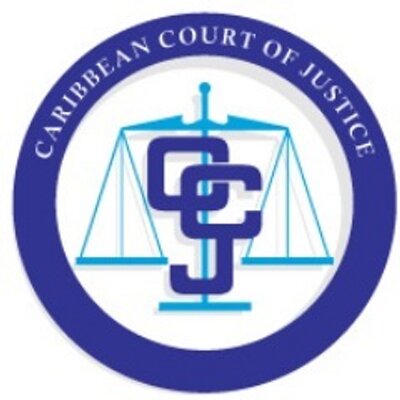Attorney Anil Nandlall has filed an appeal at the Caribbean Court of Justice (CCJ) over the appointment of retired judge James Patterson as Chairman of the Guyana Elections Commission (GECOM).
Filed on behalf of his client—PPP Executive Secretary Zulfikar Mustapha, Nandlall has advanced among grounds in his notice of motion that the Guyana Court of Appeal incorrectly construed, misconstrued, incorrectly applied and misapplied Article 161 of the constitution and failed to redress the breach of the said constitution by the state.
Last Thursday, the local appellate court upheld the legality of President David Granger’s unilateral appointment of Justice Patterson as Chairman of the GECOM, saying that he did not act unreasonably in doing so.
The court disagreed with arguments advanced by Mustapha that President Granger’s resort to the constitutional proviso in Article 161 (2) for the unilateral appointment of Patterson was unlawfully invoked and resultantly dismissed his appeal to a previous ruling of acting Chief Justice Roxane George SC.
 Nandlall, the former attorney general who served under the previous PPP government is contending on behalf of his client that Guyana has a history of fraudulent elections and for which the constitution was unanimously amended to specifically eschew the unilateral appointment by the President of a chairman and to involve the leader of the opposition in the appointment equation.
Nandlall, the former attorney general who served under the previous PPP government is contending on behalf of his client that Guyana has a history of fraudulent elections and for which the constitution was unanimously amended to specifically eschew the unilateral appointment by the President of a chairman and to involve the leader of the opposition in the appointment equation.
In his affidavit supporting his application for leave to appeal to the Trinidad-based court, Mustapha/the intended appellant said that the issues which have arisen in the case are of great general, public and constitutional importance, in as much as they concern the appointment of the chairman of GECOM which he says is the exclusive constitutional authority responsible for administering and presiding over Local Government, Regional, and National Elections.
In Mustapha’s notice of motion seen by this newspaper, he said that free and fair elections are the foundation of democracy, good governance, and the rule of law in Guyana, while stating “Guyana has (had) an undisputed and universally recognised history of fraudulent elections presided over and administered by successive Elections Commissions chaired by two former Chief Justices of Guyana who were unilaterally appointed by the then Head of Government/State.”
Mustapha goes on to say that he is advised by his attorney Nandall and verily believes that as a result of Guyana’s electoral history, and after much popular struggle and political agitation, the constitution was unanimously amended to specifically eschew the unilateral appointment by the president of a chairman of GECOM.
Involves
He instead contends that it was for this reason that the amendment involves the leader of the opposition in the appointment equation, which he says is to expand the pool from which the Chairman of the GECOM is to be chosen.
He said the intention and objective of the provision is to produce a politically consensual candidate to serve as chairman of a politically bipartisan Elections Commission, “who is authorised with a casting vote, to break political deadlock and strike that delicate equilibrium, so requisite, for such a Commission to function smoothly.”
Through his attorney, Mustapha is also arguing that the decision of the Guyana Court of Appeal failed to give effect to the “letter and spirit” of the constitutional amendments and is therefore “hopelessly misconceived and woefully erroneous in law.”
In his notice of motion, Mustapha is hoping for an order that security for costs be fixed in a reasonable sum and such further or other orders and/or directions as the CCJ may deem just and appropriate.
In its ruling, the Guyana Court of Appeal declared that the various lists supplied to the president by Leader of the Opposition Bharrat Jagdeo were not done in the manner contemplated by the framers of the constitution.
As a result, acting Chancellor Yonette Cummings-Edwards and Justices of Appeal Rishi Persaud and Dawn Gregory, who heard the appeal, said the president could not thereafter be faulted for having invoked the proviso as he is legally entitled to do.
Upholding the Chief Justice’s ruling, the Justices of Appeal declared Patterson’s appointment to have been constitutional and that he was also “fit and proper” for the position as required by the constitution.
Article 161 (2) provides for the appointment of a Chairman based on a consensual process in which a list of six persons, “not unacceptable to the president,” is submitted by the opposition leader. The proviso allows for the appointment to be made unilaterally, where the opposition leader fails to submit a list “as provided for.” Jagdeo submitted three lists with a total of 18 names, which were all rejected by Granger.
Dismissing Mustapha’s appeal, the court reasoned that the president’s resort to the proviso was neither unconstitutional nor unlawful.
Chief Justice George had also declared in her ruling that only a list of six names needed to be considered as this is what was stipulated by the constitution.
As the chief justice had found, the Justices of Appeal also found that the president was “entitled to resort to the proviso once he found the list that was submitted to be unacceptable….”
Justice George had dismissed Mustapha’s challenge to the appointment as wholly misconceived, declaring, “I hold that there is nothing before this Court to permit a finding that the President acted unlawfully or irrationally in resorting to the proviso to Article 161(2), or to rebut the presumption that Justice Patterson is qualified to be appointed to the post of Chairman of GECOM.”
Mustapha was seeking orders directing President Granger to choose a person from the 18 names submitted to him by Jagdeo and an order rescinding, revoking, cancelling and setting aside Patterson’s appointment.
Nandlall had contended that the proviso takes effect only in the event where the opposition leader does not supply a list of nominees, while also claiming that the president was duty-bound for stating reasons for rejecting the list provided to him.
The state had argued that the proviso was lawfully resorted to by the president and that in the absence of any impropriety, the president is not bound to provide reasons for rejecting the list. It argued, too, that the president did not act capriciously, with impropriety or in any partial manner in his rejection of the list.





